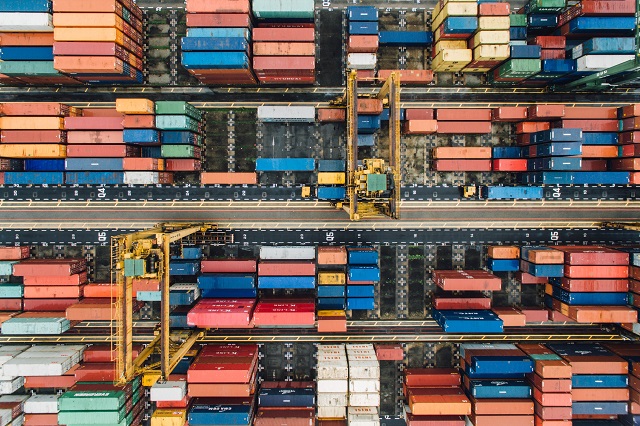Building a coalition for openness in Asia
Posted By Shiro Armstrong on August 22, 2018 @ 14:30

President Donald Trump’s ‘America First’ agenda is a dramatic departure from US leadership of a multilateral order that has been the guiding norm for over 70 years. That order defines the rules of trade and economic exchange between countries that have signed on to it through the World Trade Organization and other international institutions. While sometimes imperfectly observed, these rules have underpinned the growth in Asian economic relations and prosperity.
Despite the ups and downs in their political relations, economic relations between Japan and China have prospered hugely because of both countries’ adherence to WTO rules. Economic relations would unravel all over Asia if confidence in the WTO-led rules-based order were undermined. Trade disputes, like that between Japan and China over rare-earth metals in 2012, are settled appropriately and peacefully in the WTO without resort to retaliation, escalation or force.
US tariffs on steel and aluminium imports to protect American steelmakers and, putatively, to reduce trade deficits, as well as other protectionist measures now aimed at China, may not have large, immediate economic effects but they pose a bigger and long-term threat to the entire global rules-based system.
Some countries, including Australia, have received exemptions from the US steel and aluminium tariffs. By accepting those exemptions, they have failed their obligations to the rules-based order. These choices will become starker as the United States continues down its chosen path of extra-WTO tariff action, and as other countries are pressured to retaliate. The price for an exemption for Japan seems to be negotiation of a bilateral deal with the US that would likely include many non-economic issues. Japan has rightly chosen not to be coerced in that way.
The US and China—the world’s two largest economies and traders—are on the precipice of a tit-for-tat trade war that could spiral out of control. It is a high-risk game for which the ‘best’ outcome is a bilateral settlement towards managed trade involving voluntary export restraints and other measures inconsistent with the multilateral system. Yet this outcome would mean large negative spillovers to other countries. That would pressure other countries to ‘protect’ markets and also further empower protectionists globally. Asia cannot afford to see beggar-thy-neighbour policies and the contagion of protectionism take hold.
A worst-case outcome is an all-out global trade war that would undoubtedly lead to global recession. That didn’t seem a plausible scenario two years ago, but it is now.
The threat to the global trading system will only be met by a concerted response by other stakeholders in the global trade regime. Such a response needs coordination and strategic action that doubles down on the rules-based global system. As the world’s largest trader and second-largest economy, China has more to lose than most, but it also has the weight and interest to hold the line. China will find it too difficult to avoid retaliation against provocation if it acts alone, but China’s banding together with the global community to resist the escalation of protection may work. Japan, Australia and others will need to be part of a coalition of open economies in that endeavour.
Countries are currently negotiating bilateral deals with the Trump administration or weighing up whether to retaliate or weather the punitive measures. There are some signs of countries starting to work together to find solutions, but more needs to be done urgently. The EU and China have initiated reform of intellectual property rules in the WTO and that is a welcome development. The EU and Japan are cosying up on a deal the US wants that would tear up the core principle of the WTO in the name of ‘trade reform’ by allowing them to impose penalties on emerging-economy WTO members.
After Trump withdrew the US from the Trans-Pacific Partnership, Japan led the remaining 11 members to conclude TPP-11, the rebranded Comprehensive and Progressive Agreement for Trans-Pacific Partnership, in March 2018. Australia played an important role in securing the TPP-11, as well as leading the pushback against the Trump team’s tearing up of multilateralism as APEC’s central tenet at the summit in Vietnam in November 2017. But that’s just the start and much more will need to be done.
The most promising opportunity to strengthen Asia’s rules-based economic order is with the Regional Comprehensive Economic Partnership (RCEP), an agreement being negotiated by the 10 ASEAN members as well as Australia, China, India, Japan, New Zealand and South Korea.
RCEP provides a natural opportunity to build an Asian coalition in defence of free trade and economic cooperation. The group includes some of the largest and most dynamic economies in the world and is important enough to make a difference globally. An Australian Productivity Commission study estimates that even if tariffs were raised by 15 percentage points globally (similar to what happened in the Great Depression), RCEP countries could all continue their economic expansion if they abolished tariffs as a group. The gains for RCEP countries would be even larger with behind-the-border reforms.
Asian leaders, headed by Japan and China, need a bold commitment to resist protectionism and to work with countries within the established WTO rules. That would mean that countries were not alone when trying to avoid retaliation for moves against any American unilateral measures. Middle powers like Australia will be important in mobilising such a coalition. Not only would collective leadership in Asia give a boost to RCEP and other regional initiatives, it would help protect the global system and minimise the damage of a protectionist agenda.
Article printed from The Strategist: https://www.aspistrategist.org.au
URL to article: https://www.aspistrategist.org.au/building-a-coalition-for-openness-in-asia/
Click here to print.